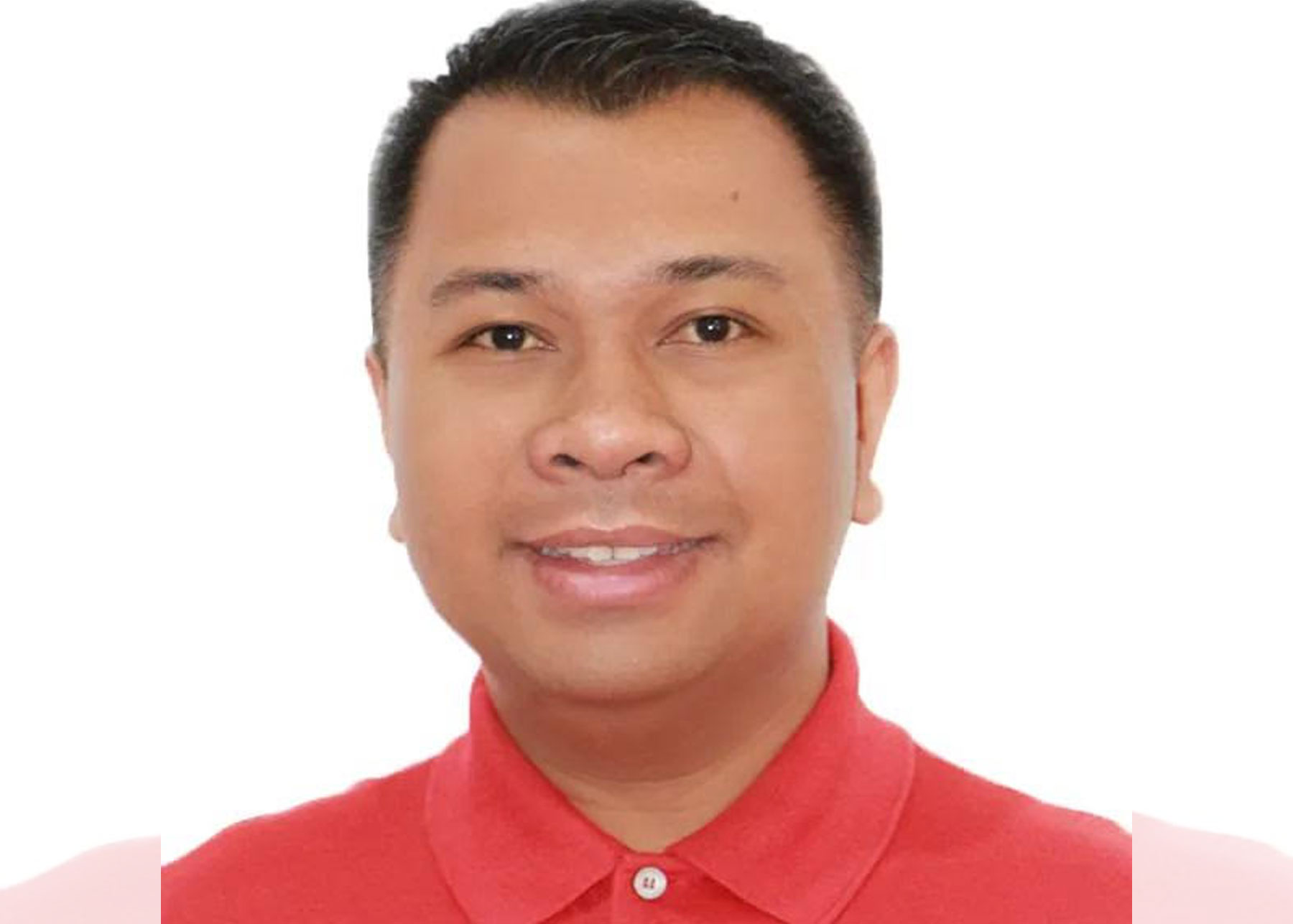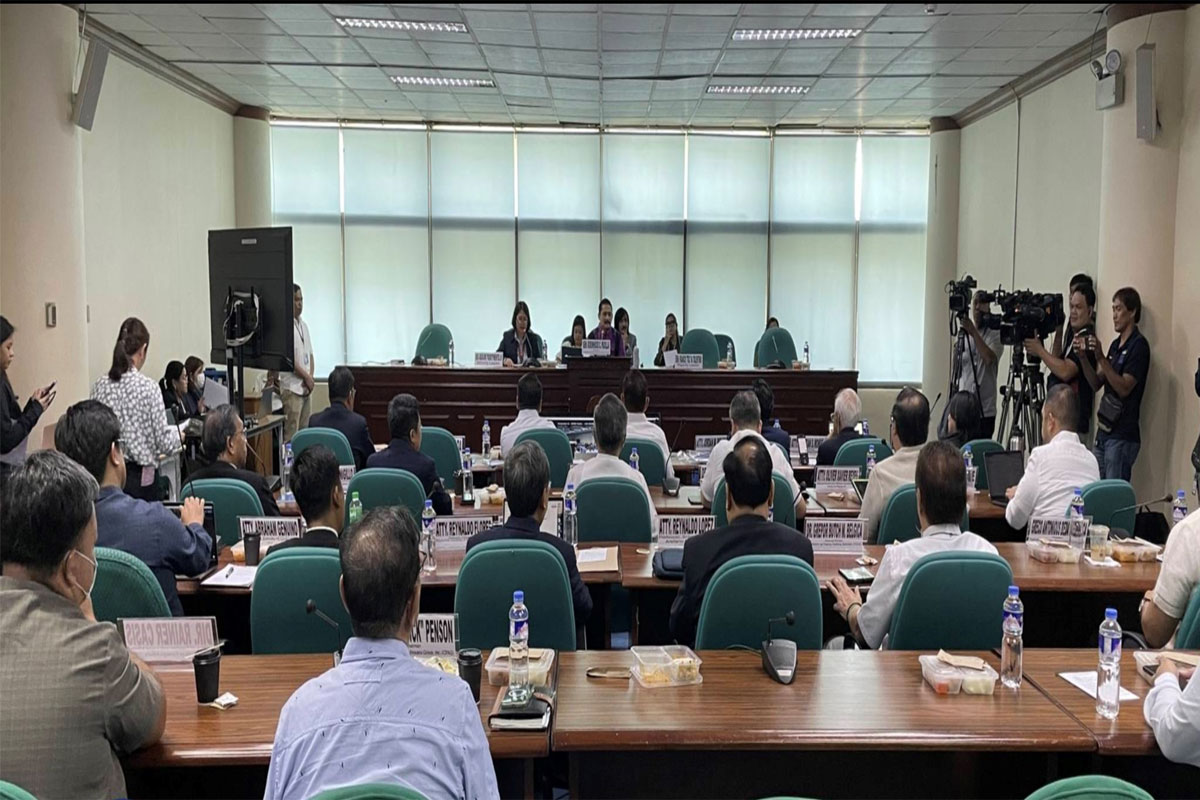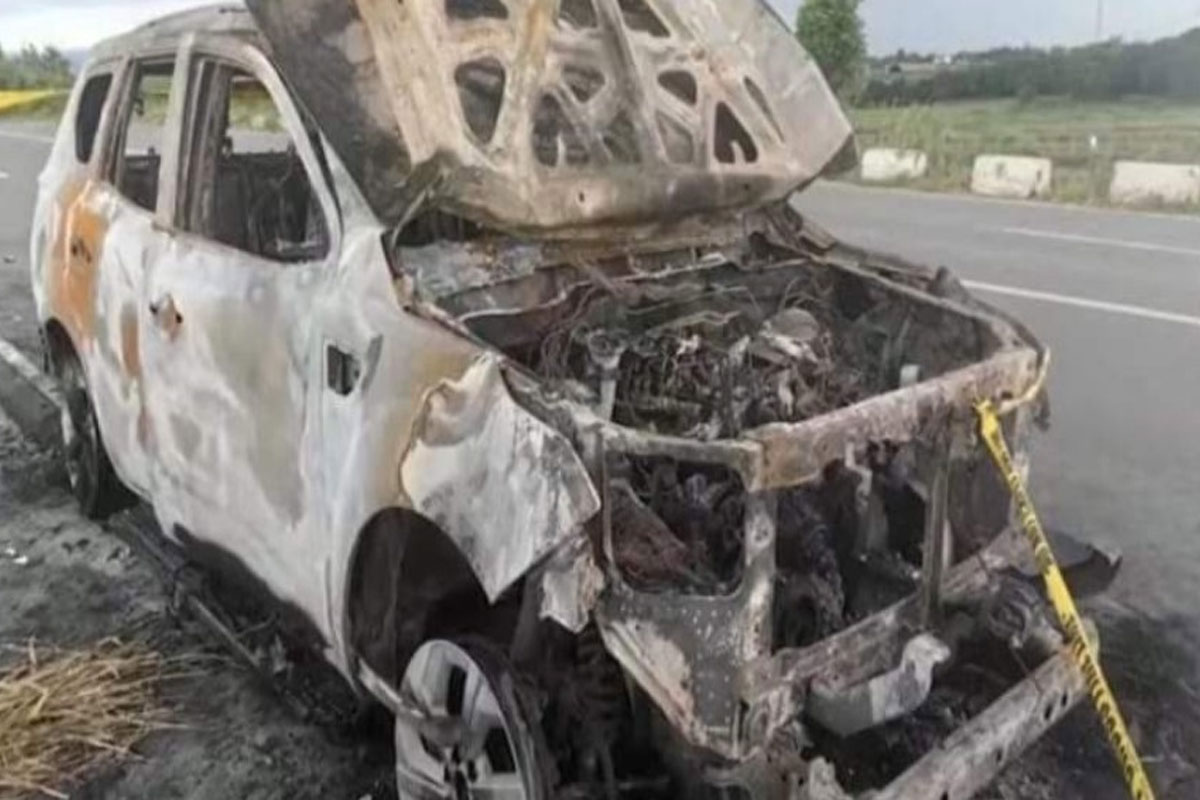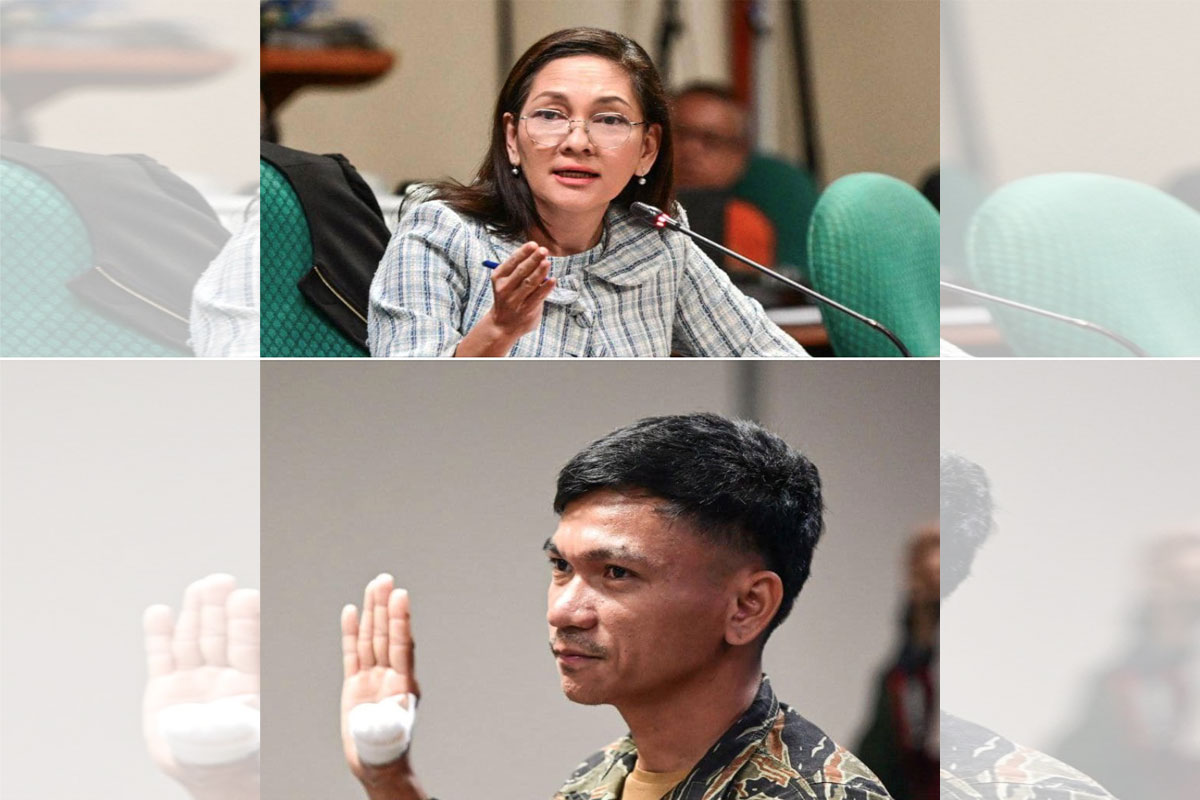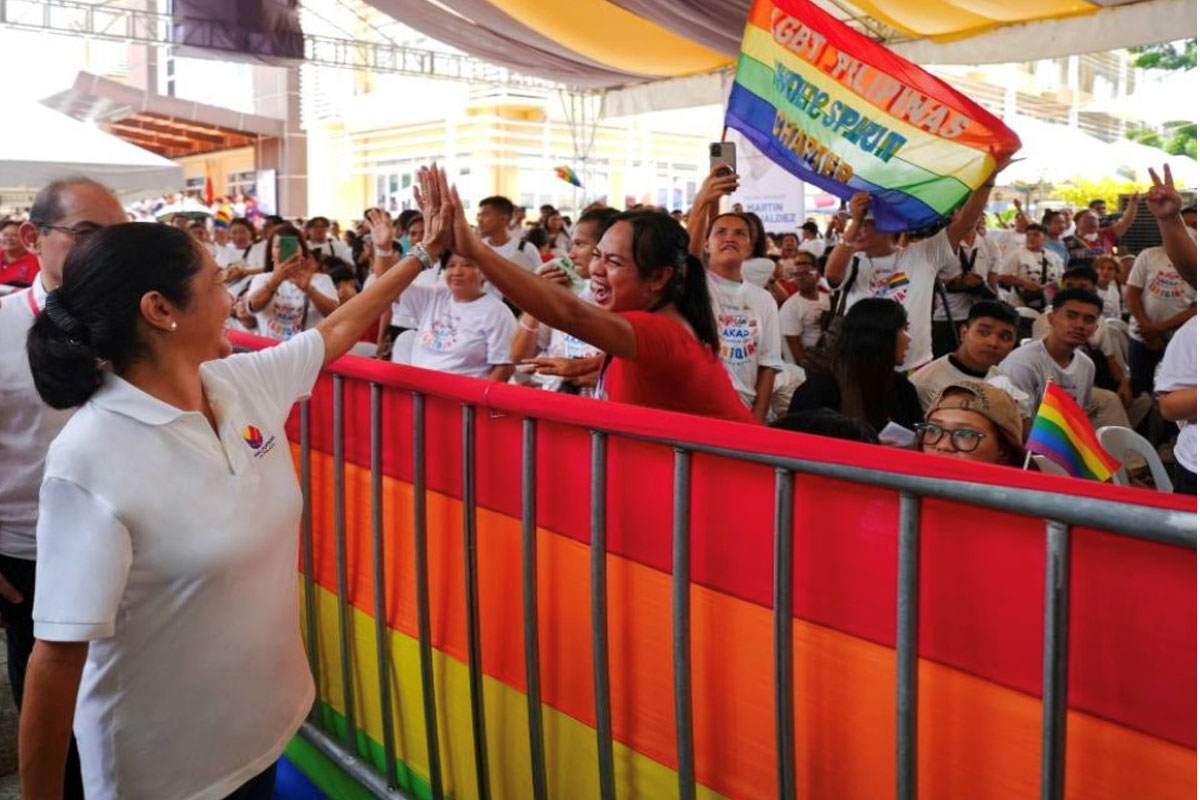
Villafuerte urges BAI to subsidize vax plan for backyard hog raisers
NATIONAL Unity Party (NUP) president LRay Villafuerte has called anew on the government to subsidize the planned mass vaccination against the African Swine Fever (ASF) for the benefit of backyard hog raisers, after President Marcos himself vouched last week for a Vietnamese vaccine, which, he said, was proven in field trials to produce sufficient antibodies against this deadly virus and safe for use for our domestic pigs.
Villafuerte, who represents Camarines Sur in the House of Representatives, likewise reiterated his “appeal for the BAI (Bureau of Animal Industry) to mount a nationwide inoculation drive for domestic pigs as soon as the FDA gives its go-signal for commercial use to the Avac Live vaccine, and for the government to subsidize the cost of the shots for small-scale or backyard raisers who have endured the brunt of the ASF outbreaks that have across the country since 2019.”
He said, “The government needs to declare a state of calamity in ASF-hit areas so it can look for and immediately release emergency funds to bankroll a mass vaccination drive this year, and then set aside additional funds in next year’s General Appropriations Act (GAA) so the BAI can sustain this inoculation project in 2024.”
The former governor of CamSur, which is one of the country’s ASF-hit provinces, reiterated his proposals after Mr. Marcos announced at a July 5 livestock event the completion of the initial phase of safety and efficacy trials for the anti-ASF vaccine, which, the President said, was found by BAI to produce sufficient antibodies against the virus and safe for use for local hogs.
Mr. Marcos said at the Livestock Philippines Expo 2023 that this development would enable the FDA to issue a certificate of product registration (CPR) for the vaccine, giving us great hope as we have been waiting for this for a very long time … The vaccine is 80% effective.”
Villafuerte earlier proposed a comprehensive solution to finally end the three-year ASF outbreaks—it first broke out in the Philippines a year after it resurfaced in the world in China in 2018—and reverse the declining hog supply, which, unless unchecked, could push up anew the market cost of pork products and aggravate persistently elevated inflation that has been hobbling Philippine economic growth.
As part of his multi-pronged proposal, Villafuerte also urged the Food and Drug Association (FDA) to speed up its registration process for the Avac Live vaccine, so it can be available for local commercial use; and the BAI to prepare this early by immediately requesting funds for the vaccine purchase and eventually overseeing the immunization drive in hog-raising areas nationwide.
An agency attached to the Department of Agriculture (DA), “the BAI needs to subsidize 100%, or at least half or 50%, the cost of the vaccine for small-scale or backyard hog raisers hit hard by the lingering killer animal disease,” Villafuerte said.
Villafuerte said the government needs to pay fully or half the cost of the vaccines, for small-scale or backyard raisers, “considering that many of them are believed to still be reeling from the twin impacts of ASF, which resurfaced locally in 2019, and the three-year Covid-19 pandemic, and are in no position to pay for this medical expense.”
He said his proposed initiatives “will best equip our government to put an end to this period of low hog supply, bigger imports and high pork prices resulting from the resurgence of ASF, which, in turn, has been one of the factors behind the stubborn elevated inflation that threatens to hold back the country’s high-growth momentum.”
The President, in his speech at the Livestock Expo, acknowledged the urgency of revitalizing the livestock and poultry sectors, considering the respective effects of ASF and Avian Influenza (AI) or bird flu.
At a chance interview during the event, the President told reporters: “I think I’m confident that when it comes to livestock and the broilers, the hogs, and the cattle … If we are able … if we continue to be able to fix the systems and now of course ang pinakamalaking issue ay ‘yung ASF pa rin at saka yung Avian influenza … that’s why I think that as long as we continue to do this and develop more and take advantage of all these new vaccines that are coming, that are being rolled out, I think kakayanin natin i-sustain—hindi lamang i -sustain ito pero pagandahin pa natin, palakihin pa natin, make it more efficient, make it more streamlined.”
In his speech at the event, the Chief Executive said, “We are also happy to announce the completion of Phase One of the safety and efficacy trials for the ASF vaccines. The BAI has found to produce sufficient antibodies and to be safe for use. And as it stands, the Philippine FDA is on track to issue a certificate of product registration for these vaccines while Phase Two trials are underway .… This gives us great hope as we have been waiting for this for a very long time … The vaccine is 80% effective … Do not underestimate or downgrade the importance and the big advantage that the vaccines bring us.”
President Marcos’ endorsement of the anti-ASF vaccine came after BAI Assistant Director Arlene Vytiaco announced last month that that the Bureau was pushing this Vietnam-made vaccine after the 100% success of the field trials conducted on pigs in six areas in Luzon over the March-May period.
Vytiaco said at a press briefing last June 2 that, “The safety and efficacy trials in Luzon showed that the hogs that have been injected produced 100% antibodies and has no side effects on animals.”
Hence, she said, “We have endorsed it (vaccine) to the FDA for the issuance of CPR,” which will certify its commercial release in the country.
Vytiaco is hopeful that the FDA will immediately issue the CPR as many countries are also waiting for supplies, and said the Vietnamese manufacturer is ready to supply 600,000 vaccines to the Philippines.
The FDA has confirmed that the BAI had applied for certification of the Vietnam-made Avac vaccine, and its spokesman Job Aguzar said this application shall be subjected to pre-assessment.
“If acceptable, the FDA shall facilitate the evaluation of the submitted dossier to determine the quality, safety and efficacy of the ASF vaccine,” Aguzar was quoted as saying in a report. ““At the same time, (there’s) a request for permit to import additional doses of the vaccine to support the on-going phase 2 clinical trial being conducted by the applicant with BAI.”
Citing assessments by industry players, Villafuerte said that only an immunization drive can prevent more ASF-related animal deaths, reverse the low hog supply in the country, reduce imports and prevent a repeat of the escalation in market prices of pork products in 2021 that was one reason for the undue spike in the country’s inflation rate.
The ASF resurfaced first in China in 2018, and then in many other countries, including the Philippines where outbreaks began in 2019. Local ASF outbreaks had spread across an alarming 460 municipalities in 54 provinces as of April this year.
“Amid the proposed initial rollout of vaccines this year, the DBM (Department of Budget and Management) and BAI can then work on a regular budget plan that can be incorporated into next year’s GAA or national budget, so the Bureau can continue this year’s vaccination drive in 2024,” said Villafuerte.
“Another upward spiral in pork prices in the retail market is the last thing we need at this time of continued elevated inflation, given how the runaway prices of such meat items after the ASF first resurfaced in the Philippines in 2019 had induced inflationary pressures that severely hurt Filipino consumers,” Villafuerte said.
He pointed out that although the inflation rate has been on a steady half-year decline from January’s 8.7% to June’s 5.4%, the consumer price index (CPI) is still way above the official target of 2% to 4% as the country’s economic managers grappled with nagging food supply and price woes that are in large part responsible for the fast rise in commodity prices, which, in turn, has affected the country’s post-pandemic growth prospects.
Villafuerte said that to the government’s credit, the DA and BAI have carried out initiatives such as hog repopulation in ASF-hit areas through the Integrated National Swine Production Initiatives for Recovery and Expansion (INSPIRE) and barangay-based monitoring and disease control through the Bantay ASF sa Barangay (BaBay ASF), but he added that he had been informed that many industry players continue to hesitate to reinvest 100% in their businesses because of the continued outbreak threats.
“These swine industry players who suffered heavy financial losses after ASF resurfaced in 2019 apparently fear losing more money in the future in the absence of any assurance that ASF outbreaks will be a thing of the past,” he said. “And it seems that the only way to boost their confidence in reinvesting 100% in the industry is if the government can shield their pig stocks from future ASF outbreaks by way of an immunization program.”
ASF is a viral disease infecting pigs with a fatality rate of up to 100%, and that had decimated swine industries worldwide since its resurgence in 2018.
This disease was responsible for a 50%-drop in our local swine population after ASF resurfaced in the Philippines in 2019 and spread across over 50 provinces by 2022, devastating commercial pig farms and backyard raisers and causing an annual revenue loss of P100 billion for allied industries.
There was a nearly 25%-decline in pork output in the period from June to October 2021 as against the same four months in 2020, driving retail prices up to P400 a kilo from the earlier per-kilo average of P250.
A check with the DA website as of July 6 showed that prices were at P270 to P380 a kilo of fresh pork and P230 to P300 for frozen pork, in the latest Agribusiness and Marketing Assistance Service (AMAS)-Bantay Presyo monitoring report.






